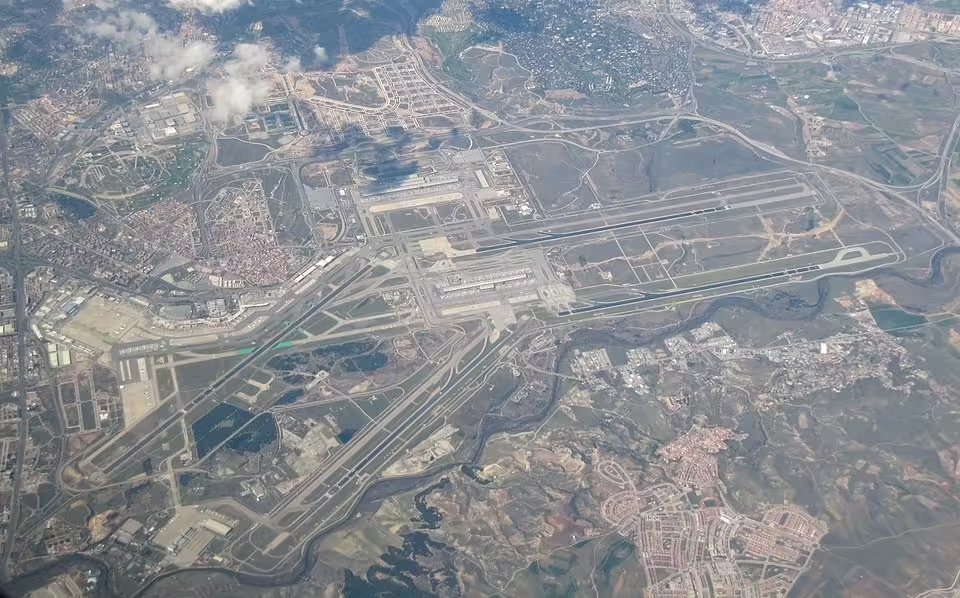Passport System Crash Sparks Chaos at Madrid Airport
A Stressful Day at One of Europe’s Busiest Airports
Madrid’s Adolfo Suárez Madrid-Barajas Airport, one of Europe’s largest and busiest airports, faced significant disruption on Wednesday, July 2, during the peak summer travel period. The airport handles over 50 million passengers annually across its five terminals, which are spread out over a vast area, some connected by shuttle trains or metro lines. On this day, thousands of travelers faced long waits, missed flights, and mounting frustration due to a failure in the National Police’s passport control systems.
The scale and complexity of Barajas, combined with the peak travel rush, meant that the system failure was felt far and wide. Passengers had to navigate crowded terminals and long lines, with some needing to use shuttle trains or the metro to reach satellite terminals, adding to their stress and travel time.
What Went Wrong?
The chaos was caused by a technical glitch in the National Police systems that manage passport control, which meant officers couldn’t process travelers as usual. The issue lasted several hours and mainly affected passengers flying outside the Schengen Area, who require more detailed checks. Authorities confirmed the problem was a temporary system failure that was fixed by mid-afternoon.
🇪🇸 | España | Caos en el aeropuerto de Madrid-Barajas por la saturación en el control de pasaportes. pic.twitter.com/6k9Ys5jVDx
— ☨ ⚜ Espíritu Templario News ⚜ ✠ (@NonNobis10) July 2, 2025
An Insider’s View on Airport Operations
A source familiar with airport operations, who previously worked at Barajas as a dispatcher and station manager, explained that the police usually have detailed information about flight schedules well in advance. ‘Flight slots and passenger volumes are planned months ahead, especially for busy periods like summer,’ the source said.
‘This planning helps ensure there are enough officers scheduled to handle passport controls. Usually, police staff numbers match the expected flow, so queues move efficiently. But when a system breaks down at the same time as peak travel, even the best planning can’t stop delays.’
The source also noted that while police patrol the terminals regularly, the sheer number of passengers arriving within a short window can create unavoidable bottlenecks when technology fails.
‘While the police manage passport controls, the volume of passengers arriving within tight windows is something all parties prepare for together. It’s not just a matter of blaming the airlines; there’s a shared responsibility across the whole system to handle these busy periods efficiently.’ This was mentioned as a response to the National Police reportedly blaming the airlines for scheduling too many flights for the same time slot.
The Airport’s Size and the Traveler Experience
Barajas’s layout is a challenge in itself. The five terminals are spread over a vast area, and some, like Terminal 4S’s satellite, can only be reached by a dedicated shuttle train. On a normal day, this means extra walking or waiting; on a chaotic day, it can add significant stress.
Passengers caught in long lines at one terminal with tight connections to another faced a race against time, often with little information to guide them. The combination of large crowds, slow processing, and difficult logistics left many travelers anxious and exhausted.

Official Statements and Responses
Ministry of the Interior
The Ministry of the Interior confirmed the technical issue but emphasized it was temporary and has since been resolved. It also rejected claims of insufficient staffing, saying over 30 officers were on duty across 16 passport control booths during the busiest times.
Aena (Airport Manager)
Aena, the company managing Spain’s airports, said the high volume of passengers that day made the impact of the system failure worse. To help manage crowds, they limited access to the shuttle train linking Terminal 4 and its satellite terminal.
Spanish Airline Association (ALA)
The Spanish Airline Association called on the government to ensure enough police officers are assigned to passport control points, especially during peak seasons, warning that delays hurt passengers, airlines, and Spain’s tourism reputation.
Travelers Left Frustrated
Social media was filled with complaints from passengers describing hours-long waits, missed flights, and a lack of clear communication. One passenger shared how they had to rush between terminals only to find the passport control backed up with no updates.
Airlines, including Iberia, said they are working hard to rebook affected customers, but the incident highlighted the vulnerability of airport operations during peak periods.
Lessons for the Future
While the technical fault was resolved fairly quickly, this disruption highlights the need for stronger backup systems and better contingency planning. Since flight schedules and passenger numbers are known months in advance, there’s a clear case for reviewing staffing and technical resources to avoid similar chaos.
For travelers, the experience is a reminder to allow plenty of extra time at the airport during busy periods and to stay informed through official updates.
Main image: X/@RobertoLai74153
Share this content:




Post Comment